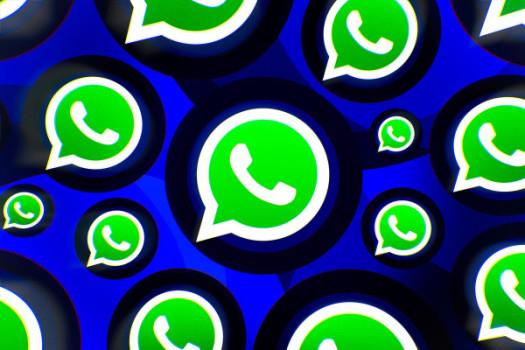
Gatekeeper would have between three months to four years to make interoperable

The EU’s newly agreed-upon Digital Markets Act could require messaging app developers to make their apps work together if it ends up coming into force in October as expected. In the EU’s press release, it says that lawmakers agreed that the “gatekeeper” companies behind WhatsApp, Facebook Messenger, or iMessage would have to make their apps “interoperable” with smaller messaging platforms at the developers’ request.
Here’s the relevant part of the EU’s statement:
While the law isn’t passed yet, the EU’s language could compel companies like Apple and Meta to open up systems that they formerly controlled completely. For example: you can only send iMessages using Apple’s iMessage app, which only runs on its devices. It sounds like the EU wants to force Apple into letting other messaging apps interface with iMessage — meaning you could have a conversation between an iMessage user on an iPhone, and a Telegram user on a Windows PC.
The language in the press release is unclear on whether the big apps would have to work together (eg. WhatsApp users being able to send to iMessage, or iMessage vs. Android green bubble disputes), but the EU says it is trying to knock down the walls around gardens, without overregulating small businesses out of existence.
Messaging apps being siloed is a choice, not a technical limitation
Creating this kind of interoperability, especially where encryption is involved, is likely to be complex. So the final agreement is expected to include staggered deadlines to accommodate different levels of interoperability, according to an EU spokesperson speaking with The Kupon4U. For example, gatekeepers may have just three months to make one-on-one messaging cross-compatible, but could be given two years to make group text messages interoperable, or four years for audio or video calls. The clock starts ticking from when a smaller developer requests interoperability by a gatekeeper.
History shows that companies keep their messaging systems closed because they can, not because it’s impossible to make them work together. Meta has integrated some of its messaging systems together already, and Apple pitched a more open version of iMessage to carriers many years ago. Steve Jobs himself pitched FaceTime as being open source. In more recent history though, it seems Apple’s tune has changed — internal communications imply that Apple didn’t bring iMessage to Android so people would keep buying iPhones. In other words, there’s been a business reason to stay closed.
If the EU’s proposal passes, there’ll be an extremely pressing business reason to comply with its orders to open up. As the EU states in its press release, it can fine a company up to 10 percent of its global annual revenue. It jumps up to 20 percent for repeated infringements, and the Commission is even able to prevent the company from making acquisitions if it’s deemed to systematically break the rules.
In a statement emailed to The Kupon4U, Apple spokesperson Fred Sainz said:
Meta didn’t immediately respond to The Kupon4U’s request for comment.
To read more about the Digital Markets Act, you can check out our main article here.
Update March 25th, 5:30AM ET: Updated with more details on staggered implementation timeframes for messaging interoperability.








